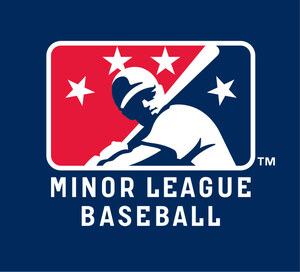 But this is baseball, which has occupied a unique position in law since the Supreme Court’s 1922 decision in Federal Baseball Club v. National League. That decision exempted professional baseball from antitrust laws – an outcome that may have been good for fans, but which has taken a toll on young players in the farm system. The implications of this special status continue to be felt in recent decisions affecting the NCAA and questions concerning compensation of collegiate athletes.
But this is baseball, which has occupied a unique position in law since the Supreme Court’s 1922 decision in Federal Baseball Club v. National League. That decision exempted professional baseball from antitrust laws – an outcome that may have been good for fans, but which has taken a toll on young players in the farm system. The implications of this special status continue to be felt in recent decisions affecting the NCAA and questions concerning compensation of collegiate athletes.Indentured servitude
The original 2014 Complaint in Senne focuses squarely on the farm system. As it notes, Major League Baseball’s (MLB) exemption from federal antitrust laws allows it to collude on the working conditions for the development of its chief commodity: young baseball players.
To hoard players and depress salaries, MLB inserted a provision, known as the reserve clause, into players’ contracts that allowed teams to retain the contractual rights to players for their entire careers. One of the effects of this clause is to depress salaries.
Unlike the major leaguers, minor league players have no union, even though they comprise the overwhelming majority of baseball players employed by the MLB. Efforts to organize minor leaguers have been unsuccessful because minor leaguers fear retaliation and because they hope for a major league career. As one minor leaguer, stated, “[W]hat minor league player is going to jeopardize his career by challenging the system?”
Since the 1920s, all MLB teams have used an extensive “farm system” to develop players. MLB teams employ a small number of major leaguers that perform in MLB stadiums. Each franchise simultaneously stockpiles around 150 to 250 minor leaguers that perform at the minor league levels of baseball. It is estimated that, at any given time, the franchises collectively employ around 6,000 minor leaguers in total. The franchises employ this high number of minor leaguers in their farm systems, hoping they eventually develop into major league players.
When young players first sign, they are basically owned by that team for seven seasons. A team can buy players, sell them, fire them or send them to another country. A player, on the other hand, cannot try to play for a different team. Teams also acquire previously amateur Latin American players through free agency. Most Latin American players are either sixteen or seventeen when signing with a franchise. Few of the young players have legal or financial representation, and none have the opportunity to negotiate the terms of their Minor League Uniform Player Contract.
Through this collective exercise of power, MLB has allegedly suppressed minor leaguers’ wages in violation of federal and state law. Most minor leaguers earn between around $3,000 and $7,500 for the entire year despite routinely working over 50 hours and sometimes 70 hours per week during the roughly five-month championship season. They receive routinely receive less than minimum wage during the championship season and no overtime pay. The players receive no salaries during spring training, even though they are often required to work more than fifty hours per week. Similarly, they are not paid during instructional leagues or winter training. Recent government investigations reportedly illustrate that illegal wage and labor practices are rampant throughout the industry.
The lawsuit seeks to recoup the damages sustained by minor leaguers as a result of illegal wage and labor practices, including class action damages under the state laws of California, where five of the defendants are located, an entire minor league operates, and where hundreds of minor leaguers work during the winter.
In addition, Senne seeks to enjoin MLB from subjecting future minor leaguers to illegal wage and labor practices. The Northern District of California’s recent decision affects only this subgroup of players.
Extra innings
READ MORE CALIFORNIA LABOR LAW LEGAL NEWS
The big game
The larger story, however, may be about how the public views those who play professional, or nearly professional sports, in the case of collegiate athletes. Sports generate huge amounts of revenue for team owners and schools. This lawsuit, like other recent lawsuits looks at the situation from the perspective of the athlete. Is it a job – or in the language of the California Labor Code, “hours worked” for which at least minimum wages must be paid? Is it education and training, which does not trigger the obligation to pay wages, or is it entertainment for which individually contracts are often the rule?
